Abigail Adams was ahead of her time in many ways.
She married John Adams the future 2nd president in 1764. During the early years of their marriage, John was frequently away. At a time when women rarely handled business affairs, Abigail tended the family business, a farm in Quincy, MA (where I live) during his many absences.
She hired help, traded livestock, supervised the planting and harvesting, and oversaw construction.
She kept track of all the finances, all while personally educating their five children.

Writing from the Continental Congress John acknowledged his wife’s skill with the joking compliment he had received word that their farm never looked better and was likely to outshine all their neighbors.
I like to imagine Abigail toiling over the ledgers with a quill pen by candlelight.
I am no Abigail Adams, but I do keep careful track of my family’s and my business’s finances.
For nearly 30 years I have been an avid devotee of Quicken. Until recently I manually typed in every single transaction. (I know, try not to laugh)
Recently a client getting started with Quicken told me she was easily able to link her credit card and bank accounts and then download and import the transactions directly into Quicken.
I thought, “Wow, if my client can do this, I can too.”
I decided to try it for the account with the most transactions by far — our Amazon Prime credit card. It took some time to set up, but once I did I was amazed how fast it was. I kicked myself for all the time I’d spent manually typing transactions over the years.
But then, I realized something important. When I clicked a button, then typed in my password to speedily download my transactions, I saved a ton of time — but I missed a crucial part of the process.
I was no longer thinking about each transaction.
When I typed in each transaction, I thought about it, at least briefly.
I noticed things like:
- That restaurant was ridiculously expensive for mediocre food. (back when we could go to restaurants)
- That’s actually a business expense — I mistakenly used my personal card.
- That’s an expense my husband’s employer should reimburse him for.
- Maybe I don’t need to keep subscribing to that magazine now that the introductory price has gone up.
- This transaction was recorded twice.
- I don’t recognize this transaction.
When I stopped typing in the transactions, it became all too easy to download them, set up the online payment to pay the bill, and walk away.
I’m not going to go back to manually typing in the transactions, or recording them with a quill pen by candlelight. But I am forcing myself to look at each individual transaction.
If you haven’t looked at your transactions recently and you’re feeling up to it during a pandemic, take some time to do it.
Look for waste, fraud, and purchases of things you don’t really need or want.
This exercise can produce a huge ROI (Return on Investment).
When the Adams National Historic Park reopens, come to Quincy and I’ll take you on the tour. I’ll even take you to lunch, but not at a ridiculously expensive restaurant with mediocre food.
